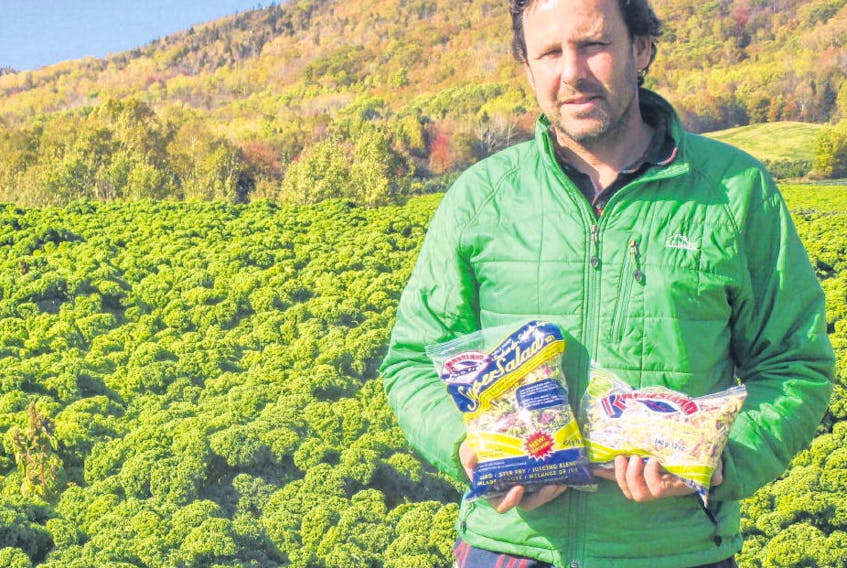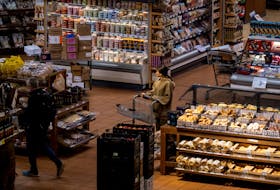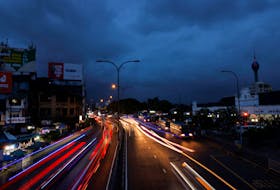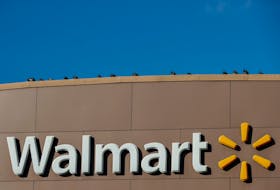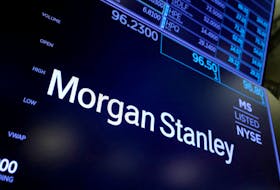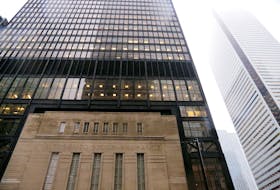Nestled against the colourful North Mountain just outside Canning, wooden crates filled with broccoli cut fresh from the fields that day sit under a warm autumn sun, ready to be shipped to grocery stores across Atlantic Canada and as far south as Boston.
Next door, inside Randsland Farms’ small factory warehouse, a conveyor belt moves broccoli florets along. They are ready to be packaged before making their way to Sobeys deli departments. Inside the warehouse’s cold storage area, boxes of bagged kale “super salad” that were grown, prepared and packaged on the farm are also ready to be shipped.
“We are there every step of the way,” said Andrew Rand, Randsland Farms sales and operations manager.
Atlantic Canadians have long relied on the farm for their supply of fresh broccoli. Andrew’s father, Bruce Rand, bought land in the Annapolis Valley in 1970 and started with a tobacco crop. He soon switched to broccoli and that’s been the family farm’s staple crop since. Today the farm grows 500 acres of broccoli and supplies 80 per cent of that vegetable in Atlantic Canada. It also exports into Quebec, Ontario and Boston.
Recognizing the need to diversify, and taking inspiration from the 2014 Ivany report called Now or Never: An Urgent Call to Action for Nova Scotians, the Rand family acted. The report called on businesses to increase exports and add value to products. For the Rands, that meant adding kale and some other crops to their mix and exporting to the United States.
Instead of simply bunching the kale, Andrew decided to create a packaged “super salad” mix that would appeal to time-starved, health-conscious consumers. The salad mix includes kale, broccoli, red and green cabbage, as well as a small package of cranberries, pumpkin seeds and salad dressing. In bags, the farm also sells two different types of coleslaw mixes and cut-and-washed kale.
What’s interesting about Randsland Farms is that they do it all starting with seeds which they plant inside the farm’s 14 greenhouses. By May 1 the seedlings are transplanted into the fields where they grow until harvest time, which typically lasts from mid-June until mid-November.
Andrew is excited to be offering consumers a local salad mix. Most of the mixes currently available in local grocery stores come from California, he said. Not only does Randsland Farms offer comparable prices, but the salad can be on the shelf within a couple of days of being picked, he added.
“We think we are the only local grower offering bagged salads,” he said. “We have credibility because we are both the grower and the processor.”
The idea for the kale salad started after the farm was recruited by a large wholesaler in the United States to grow collard greens and kale for the southern market. For several years, the Rands sent truckloads of greens to Baltimore and other areas until soaring freight costs made it no longer financially feasible. With acres of kale, they had to find new uses for the plant.
“You put your thinking cap on and try to get innovative,” he said.
It’s what they’ve always done on the farm. It was a mindset held by Bruce, who is now 68 and ready to pass the torch to the next generation. Having experienced so much adversity while building the farm, Bruce learned to not let fear prevent him from taking risks. Andrew is trying now to mimic his father’s can-do attitude and continue the farm’s success.
“My dad has always had the attitude, what’s the next thing?” he said. “In a good way, he isuneasy.”
A graduate of Dalhousie University’s agriculture campus, Andrew returned to the family farm in 2005 after working in landscape and horticulture. His dad was thinking of a succession plan and encouraged him to one day take his place running the farm.
“The lifestyle of a farmer is appealing. You are a slave to many things but you are the king of your own domain,” he said. “There is quite a feeling of freedom.”
Randsland Farms is truly a family farm. Along with his mother and father, Andrew works with his brother Luke, his wife Lise and several other relatives. His three kids are still too young to know whether they will follow in their parents’ and grandparents’ footsteps. Working with family isn’t always easy, but if father and son have a disagreement on the farm, they know they will have to make amends before they meet at their local Baptist church where Andrew plays organ and Bruce sings in the choir.
Randsland Farms employs 20 Canadians, some of whom work seasonally, and 40 migrant workers. Most of the migrant workers come from Mexico and Jamaica for six months. Back in the mid-1980s the farm was innovative in a different way when it became the first to bring in foreign workers, he said.
The way Andrew sees it, agriculture is moving in two different directions. One way is back to the old days, where consumers went to small farm markets and bought directly from small farms. The other way is where busy consumers go to big grocery stores looking for ready-made products.
“It makes sense for us to go in that direction to help the timestarved consumer,” he said. “We want to add more value to what we are doing.”
Currently the farm’s bagged salads are available in Sobeys stores, Noggins Corner Farm Market, Masstown Market, Avery’s Farm Market, and a handful of other, smaller markets. The plan is to have the salads in Atlantic Superstore and Walmart in 2018 and then export them to stores in the United States.
Andrew and his wife are busy now finding new markets and buyers for their value-added products.
“It doesn’t hurt that health and wellness is on everyone’s minds,” he said.
Randsland Farms’ move into value-added products started several years ago. Instead of selling just bunches of broccoli, they started to wrap it as well. Then two years ago, they invested tens of thousands of dollars into equipment that would allow them to further process their vegetables by sanitizing and packaging them. Andrew expects to keep moving toward more value-added goods by developing new products.
“I always want to have in development some other salad formations,” he said. With help from Acadia University, he has also developed dehydrated and powdered kale products, and is working on plans to market the product as either a food additive or for the smoothie supplement market.
“We’re hoping that the diversity we introduced to the mix will give us more security and less risk,” he said.
-Allison Lawlor

